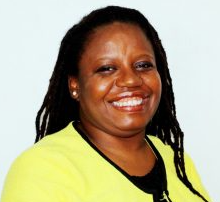UN Women and Norway have urged South Sudanese leaders to renew their commitment to peace, warning that rising insecurity and deepening political tensions threaten to reverse hard-won gains in the country’s fragile transition.
Speaking at a peace conference in Juba on Wednesday, Korto Williams, UN Women’s Deputy Country Representative, said advancing the Women, Peace and Security (WPS) agenda requires coordinated action “from Payam to Boma levels.”
She noted that global conflict trends show worsening conditions for women, with UN data indicating that 676 million women now live near deadly conflicts, civilian casualties among women and children have quadrupled, and conflict-related sexual violence has risen sharply.
Williams said South Sudan must ensure women are fully included in peace processes, not only protected and praised women-led civil society groups for acting as first responders and bridge-builders in conflict areas. The official added that UN Women continues to support national peace efforts through technical assistance, advocacy, and training, while thanking government institutions, faith groups, and donors, including Norway and the Peacebuilding Fund.
For his part, Norway’s Ambassador to South Sudan, Roar Haugsdal, called on the country’s leaders to end cycles of violence and recommit to dialogue. Warning that a return to conflict would be a “tragedy,” he said Norway’s priority remains supporting peace, stability, and development.
“Enough is enough,” Haugsdal said, urging leaders to re-engage both internally and with regional and international partners. He stressed that sustainable peace must be built from the grassroots “in villages, schools, churches and community networks”—and said civil society, youth, women, traditional authorities and the media must be able to speak freely and hold authorities accountable.
He added that peace is “not about funding” but about creating open spaces for inclusive participation and implementing the revitalized peace agreement in full.
Meanwhile, Esther Kyewalabye, Senior Gender Advisor at the Reconstituted Joint Monitoring and Evaluation Commission (RJMEC), emphasized that peacebuilding begins with individuals. Sharing her experience as a “child of war,” she said many generations of South Sudanese have grown up with conflict and urged citizens to break that pattern.
Kyewalabye outlined six responsibilities for individuals working for peace, including making peace a personal priority, pursuing it diligently, living peacefully with others, providing courageous leadership, mobilizing resources, and praying for peace after taking action. She warned that public calls for peace are empty if people continue to live in conflict within their own homes and communities.
Despite growing challenges, she urged South Sudanese not to lose hope. “If things look this difficult when we are praying and working for peace, imagine how they would be if we didn’t,” she said.




